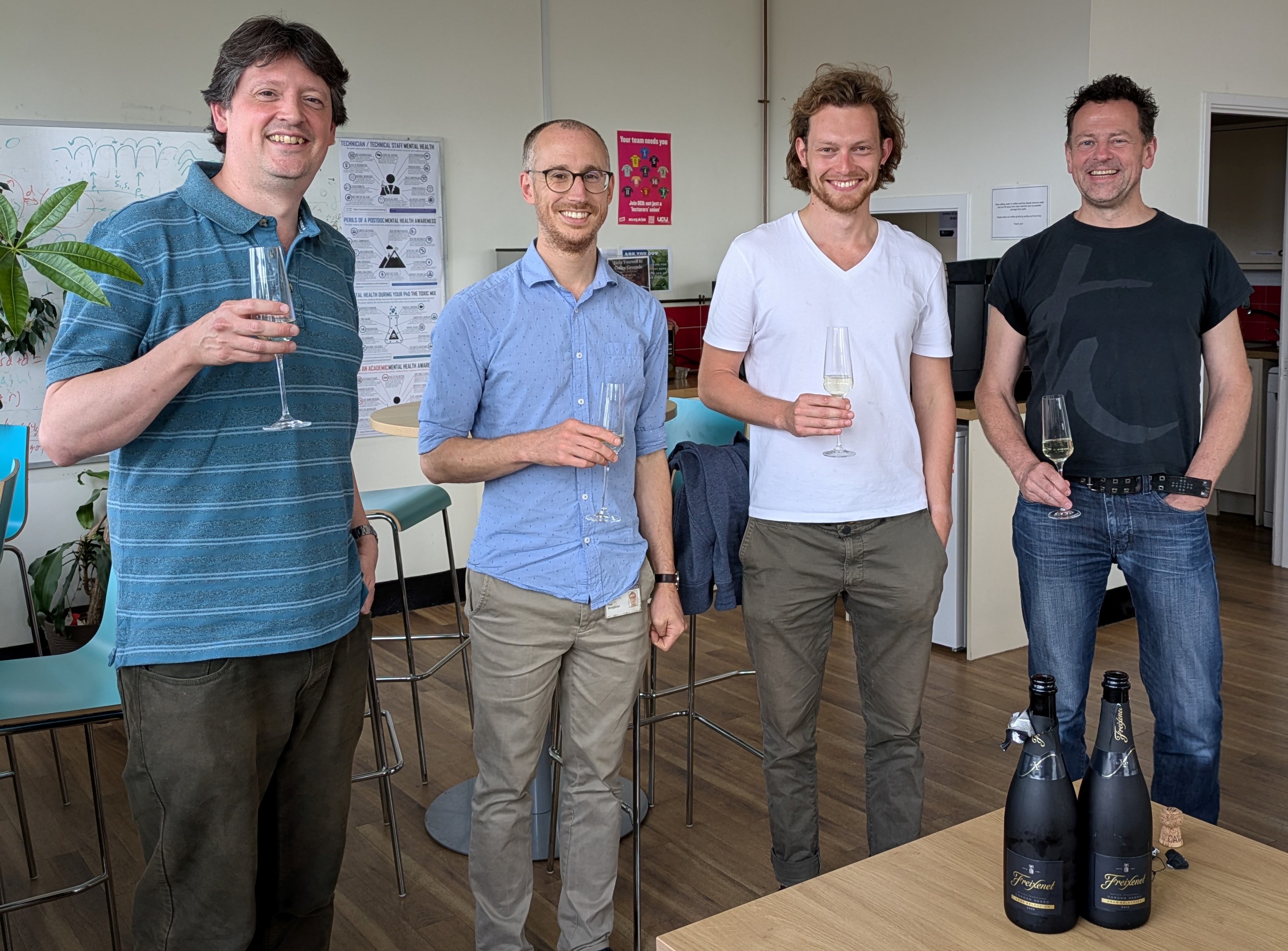Paul Skrzypczyk
Professor of Theoretical Physics | School of Physics | University of Bristol, UK | Former Royal Society University Research Fellow | Former CIFAR Azrieli Global Scholar

I am theoretical quantum physicist.
My primary research interest is quantum theory, in particular, the renewed understanding that has been gained with the advent of quantum information. I am interested in many aspects of quantum theory, with a primary focus on are quantum nonlocality, quantum measurements, and quantum thermodynamics.
In quantum theory the way actions in one place effect far-away places is much more intricate and fascinating than in classical physics. In particular, quantum theory allows for ‘nonlocal’ effects, whereby actions in one place seemingly affect another distant place instantaneously, although this can only ever be confirmed later in time. My aim is to obtain a deep understanding of this counter-intuitive phenomenon. This is not only crucial in order to really understand quantum theory and the way the microscopic world behaves, but also for applications in quantum information processing, where it opens up new possibilities which are impossible using only classical physics.
The process of measurement plays a much more fundamental and prominent role in quantum theory compared to much of classical physics. It is through the process of measurement that we gain information about the microscopic world, and in quantum theory this measurement necessarily disturbs the system measured. I am particularly interested in this information gain, and also affects related to the fact that not all properties of a system can be measured simultaneously in quantum theory, known as measurement incompatibility.
The laws of thermodynamics are arguably the most prevalent in the whole of physics. It is fascinating to understand to what extent they apply at the quantum level, especially for small systems - far from their original realm of applicability. Pursuing this line of investigation is not only a way to probe the limits of quantum theory and thermodynamics, but is also relevant for future quantum technologies, where both quantum and thermal effects will ultimately play a role.
News
| Jul 9, 2025 | Promotion I’m humbled to share the news that I’ve been awarded promotion, and from next month I will become Professor of Theoretical Physics. |
|---|---|
| Apr 8, 2025 | Bristol Teaching Awards nominations I’m very happy to have received two nominations in this year’s annual Bristol Teaching Awards in the category of Innovative and Inspiring Teaching. |
| Feb 27, 2025 | Publication Very pleased that my PhD student Chris Corlett’s first paper from his PhD with me, Speeding Up Quantum Measurement Using Space-Time Trade-Off, has been published in Phys. Rev. Lett. as an Editor’s Suggestion. |
| Jul 24, 2024 | Lecturer of the Year I’m thrilled to have won the inaugural Graduates’ Lecturer of the Year 2024 award, given out by our amazing physics society Chaos at this year’s graduation. |
| Jun 28, 2024 |
Papers
Very pleased to once again getting a backlog of papers out this year:
|
| Jun 26, 2024 |
PhD Viva I am delighted to announce the Ben Jones successfully defended his PhD last week. Many congratulations to Ben. His examiners were Andreas Winter and Tony Short.

|
| Jun 24, 2024 | Fellowship I am thrilled that Chung-Yun Hsieh has been offered a prestigious Leverhulme Early Career Fellowship, which means he will be able to stay in Bristol for a further 3 years! Many congratulations to Chung-Yun on this well-deserved fellowship! |
| Jun 30, 2023 |
Papers
Very pleased to have started to get a backlog of papers finally out:
|
| Mar 13, 2023 | Textbook My textbook Semidefinite Programming in Quantum Information Science, written with Daniel Cavalcanti, has just been published by IOP Publishing as part of their IOP Series in Quantum Technology. |
| Aug 1, 2022 | Promotion I have been promoted from Lecturer to Associate Professor. |